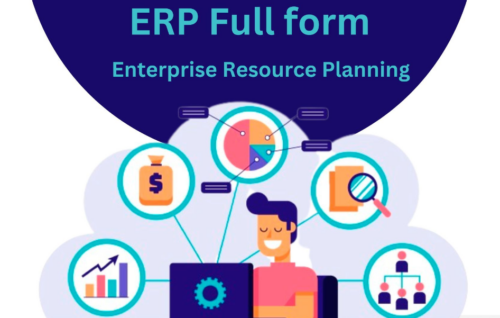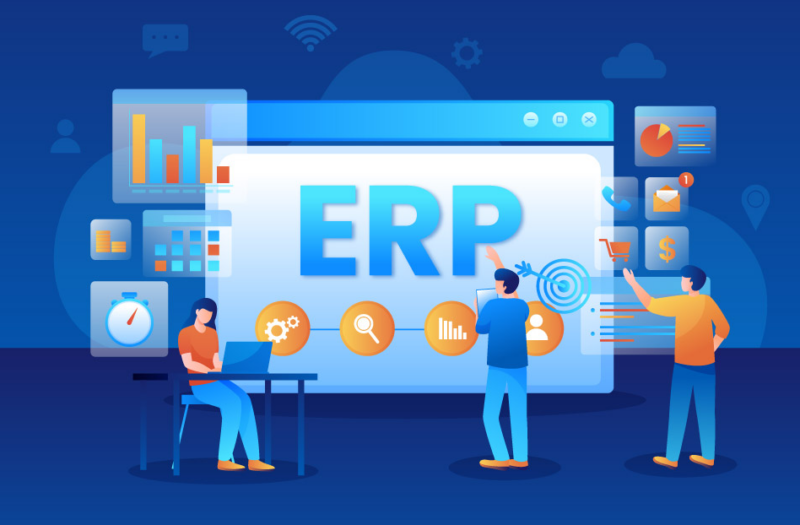ERP Resource Management : Enterprise Resource Planning (ERP) systems have become indispensable tools for businesses looking to streamline their operations and enhance productivity. Among the many functions they serve, ERP systems play a crucial role in resource management.
In this article, we’ll delve into the intricacies of ERP resource management, its benefits, challenges, best practices, and future trends.
Introduction to ERP Resource Management
ERP, in essence, is a software solution that integrates various business processes and functions into a unified system. Resource management within the ERP framework involves efficiently utilizing and allocating resources such as manpower, finances, and materials to optimize productivity and achieve organizational goals.
The Role of ERP in Resource Management
One of the primary functions of ERP systems is to centralize data from different departments and functions within an organization. This integration enables businesses to have a comprehensive view of their resources and facilitates informed decision-making.
Key Features of ERP Resource Management
Resource Allocation
ERP systems facilitate the efficient allocation of resources based on real-time data and demand forecasts. This ensures that resources are utilized optimally, minimizing wastage and improving overall efficiency.
Tracking and Monitoring
With ERP resource management modules, businesses can track and monitor resource usage in real-time. This visibility enables proactive decision-making and helps in identifying areas for improvement.
Benefits of Implementing ERP Resource Management
Implementing ERP resource management offers several benefits to organizations:
Enhanced Efficiency: By streamlining processes and optimizing resource allocation, ERP systems enhance overall operational efficiency.
Cost Reduction: Effective resource management leads to cost savings through reduced wastage and improved utilization.
Improved Decision Making: With real-time data and insights, organizations can make informed decisions that drive growth and profitability.
Challenges in Implementing ERP Resource Management
While the benefits of ERP resource management are significant, implementing it can pose several challenges:
Resistance to Change: Employees may resist adopting new systems and processes, hindering successful implementation.
Integration Issues: Integrating ERP systems with existing infrastructure and processes can be complex and time-consuming.
Best Practices for Successful ERP Resource Management Implementation
To overcome these challenges and ensure successful implementation, organizations can follow these best practices:
Employee Training: Providing comprehensive training to employees on using ERP systems and understanding the benefits of resource management.
Stakeholder Engagement: Involving key stakeholders from different departments in the implementation process to ensure buy-in and support.
Future Trends in ERP Resource Management
As technology continues to advance, the landscape of ERP resource management is evolving rapidly, paving the way for new trends that promise to reshape how organizations optimize their resources. Here are some of the key future trends to watch out for:
AI and Machine Learning Integration:
One of the most promising developments in ERP resource management is the integration of artificial intelligence (AI) and machine learning (ML) technologies. By leveraging AI and ML algorithms, ERP systems can analyze vast amounts of data to identify patterns, predict future resource needs, and optimize resource allocation in real-time. This predictive capability empowers organizations to make data-driven decisions with greater accuracy and efficiency, ultimately enhancing overall productivity and competitiveness.
Cloud-Based Solutions:
Another significant trend is the widespread adoption of cloud-based ERP solutions. Cloud technology offers numerous benefits, including scalability, flexibility, and accessibility. With cloud-based ERP systems, organizations can access their resources and data from anywhere, at any time, using any device with an internet connection. This level of accessibility facilitates collaboration among teams, streamlines operations, and reduces IT infrastructure costs. Moreover, cloud-based ERP solutions often come with built-in security features and regular updates, ensuring data integrity and compliance with industry regulations.
Integration with IoT Devices:
The Internet of Things (IoT) is revolutionizing how businesses collect, analyze, and utilize data from connected devices. In the context of ERP resource management, integrating IoT devices with ERP systems enables organizations to gather real-time data on resource usage, equipment performance, and environmental conditions. This granular level of insight enables proactive maintenance, predictive analytics, and more efficient resource utilization. For example, manufacturing companies can use IoT sensors to monitor equipment health and schedule maintenance tasks before a breakdown occurs, minimizing downtime and optimizing production schedules.
Focus on Sustainability:
With growing concerns about environmental sustainability and corporate social responsibility, there is a heightened focus on integrating sustainability principles into ERP resource management practices. Organizations are increasingly seeking ERP solutions that enable them to track and minimize their environmental footprint, optimize energy consumption, and reduce waste throughout the supply chain. By incorporating sustainability metrics into their ERP systems, businesses can not only reduce costs and mitigate risks but also enhance their brand reputation and appeal to environmentally conscious consumers.
Enhanced User Experience:
Finally, there is a growing emphasis on improving the user experience (UX) of ERP systems to enhance user adoption and productivity. Modern ERP solutions are leveraging intuitive interfaces, mobile-friendly designs, and personalized dashboards to provide users with a seamless and intuitive experience. By prioritizing usability and accessibility, organizations can empower employees at all levels to effectively utilize ERP resources, make informed decisions, and drive organizational success.
In conclusion, the future of ERP resource management is characterized by technological innovation, greater connectivity, and a focus on sustainability and user experience. By embracing these trends and leveraging advanced ERP solutions, organizations can unlock new opportunities for efficiency, growth, and competitive advantage in an increasingly dynamic and interconnected business environment.
Conclusion
ERP resource management plays a vital role in optimizing resource utilization and enhancing organizational efficiency. By leveraging ERP systems effectively and implementing best practices, businesses can overcome challenges and unlock the full potential of their resources.
FAQs
What is ERP resource management?
ERP resource management involves efficiently utilizing and allocating resources within an organization using Enterprise Resource Planning (ERP) systems.
What are the benefits of implementing ERP resource management?
Some benefits include enhanced efficiency, cost reduction, and improved decision-making capabilities.
What challenges are associated with implementing ERP resource management?
Challenges may include resistance to change among employees and integration issues with existing systems.
How can organizations ensure successful implementation of ERP resource management?
By providing comprehensive employee training and engaging key stakeholders throughout the process.
What are the future trends in ERP resource management?
Trends include AI and machine learning integration and the adoption of cloud-based solutions.


